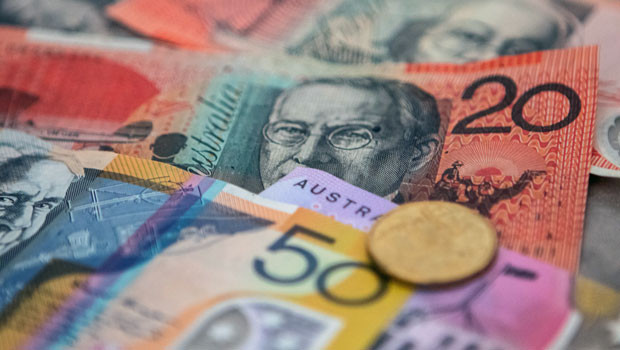Asia report: Stocks mostly higher after RBA minutes

Stock markets in Asia were mostly higher on Tuesday, with Japanese shares leading the charge, as investors digested the minutes from the Reserve Bank of Australia’s most recent meeting.
In Japan, the Nikkei 225 was up 1.84% at 26,246.31, as the yen weakened 0.27% against the dollar to last trade at JPY 135.44.
Uniqlo owner Fast Retailing slipped 0.14%, while robotics specialist Fanuc was up 2.32% and tech investing giant SoftBank Group jumped 2.88%.
The broader Topix index was 2.05% firmer by the end of trading in Tokyo, closing at 1,856.20.
On the mainland, the Shanghai Composite was down 0.26% at 3,306.72, and the smaller, technology-heavy Shenzhen Composite was off 0.51% at 12,423.86.
South Korea’s Kospi was 0.75% firmer at 2,408.93, while the Hang Seng Index in Hong Kong was ahead 1.87% at 21,559.59.
Chinese technology plays were in the green in the special administrative region, with Alibaba Group up 1.34% and Tencent Holdings 2.75% firmer.
The blue-chip technology stocks were mixed in Seoul, however, with Samsung Electronics down 0.34% and SK Hynix rising 0.74%.
Fresh data out of Korea showed the country’s 20-day exports falling 3.4% year-on-year in June, swinging from the 24.1% rise in May.
Craig Botham at Pantheon Macroeconomics called it an “ominous sign” for global trade, after May’s “bumper” data.
“We should make an allowance, however, for the loss of two working days at the start of the month.
“So while exports fell 18.8% month-on-month, the drop was only 9.8%, working day adjusted.
“Similarly, after accounting for the loss of those two days, exports rose 7.4% year-on-year, rather than falling 3.4%.”
Still, Craig Botham said it was a “sharp slowdown” from the 23.9% growth in May.
"We suspected a slowdown following the strong numbers in May, which was driven by China’s reopening.
"This allowed firms to catch up on a backlog caused by the disruption to regional supply chains, and also to benefit from a return of Chinese demand.
"At least one of these factors was always going to be transitory."
Oil prices were higher as the region went to bed, with Brent crude futures last up 1.46% on ICE at $115.80 per barrel, and the NYMEX quote for West Texas Intermediate jumping 2.31% to $110.48.
In Australia, the S&P/ASX 200 was 1.41% higher at 6,523.80, as investors pored over the latest minutes from the country’s central bank.
The Reserve Bank of Australia said it was turning towards further tightening going forward, amid record-low unemployment and a relatively resilient domestic economy.
In a speech, RBA governor Philip Lowe said he was anticipating inflation to peak at about 7% by the end of 2022.
“Achieving that balance is not straightforward and there are risks involved, but higher interest rates will lessen the current inflationary pressures,” Lowe said.
Across the Tasman Sea, New Zealand’s S&P/NZX 50 jumped 1.07% to 10,701.59, with construction conglomerate Fletcher Building rising 3.6%.
Fletcher is embroiled in a scandal centred around its monopoly on plasterboard, as serious supply shortages disrupt construction across the country.
Around 94% of New Zealand’s plasterboard is supplied by Fletcher’s ‘GIB’ brand, with many blaming the country’s unique building standards and the company’s monopolistic practices for preventing imported products from competing.
Both of the down under dollars were stronger on the greenback, with the Aussie last ahead 0.17% at AUD 1.4360, and the Kiwi advancing 0.2% to NZD 1.5760.
Reporting by Josh White at Sharecast.com.